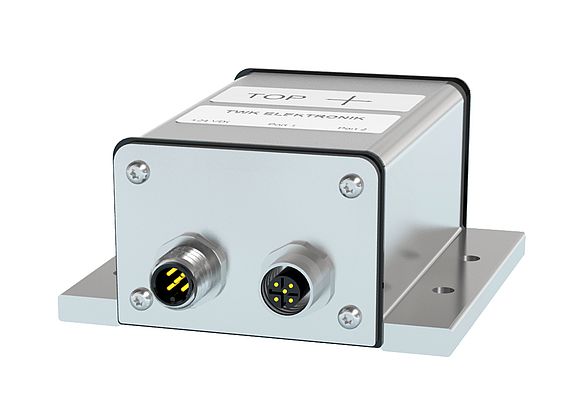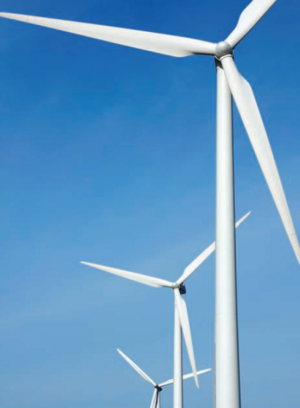TWK has developed a new generation of inclinometers. They measure more precisely and faster than before, and are insensitive to interfering acceleration and lateral inclination excursion. These sensors are highly suitable for applications with dynamic requirements in which precise inclination angles nevertheless have to be registered and transferred to a control system. This improved performance is enabled by extending the original acceleration sensor with a yaw rate sensor, also known as a gyroscope, and skilfully combining the measurement signals to form a corrected output signal that precisely indicates the measured angle.
Yaw rate sensor with Kalman filter
Both sensor types are based on MEMS technology. The measured variables of the original acceleration sensor and the gyroscope are merged and processed by adding a Kalman filter. This filter technology enables the measurement value that is to be output to be calculated, corrected and predicted for a short time. This is necessary because the acceleration sensor is unable to supply a measured inclination value when subject to dynamic interfering acceleration; instead, the yaw rate sensor calculates and predicts a measurement value with the aid of the Kalman filter. Unlike the acceleration sensor, the yaw rate sensor does not react to linear interfering acceleration but only to changes in the inclination angle. All possible, realistic application simulations and measurements at TWK show that the sensor fusion system operates precisely and safely. This sensor system not only guarantees safe, hazard-avoiding operation in mobile machines, even when using motors and hydraulic pumps or during other operations that generate strong vibrations. The sensors have an operating temperature range of -40° to +85°C, and measure inclination angles of up to ±100° with a resolution of 0.01° and an accuracy of ±0.2°. Measurement can be carried out on one or two axes. With its protection class of IP67, the stable aluminium housing also withstands harsh environmental conditions with ease. Protection classes up to IP69K are possible.


















